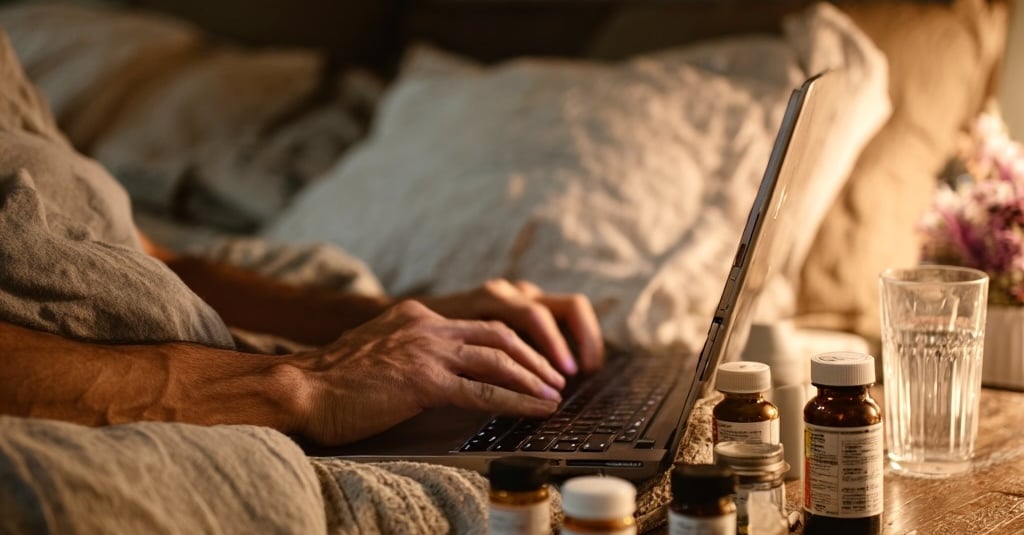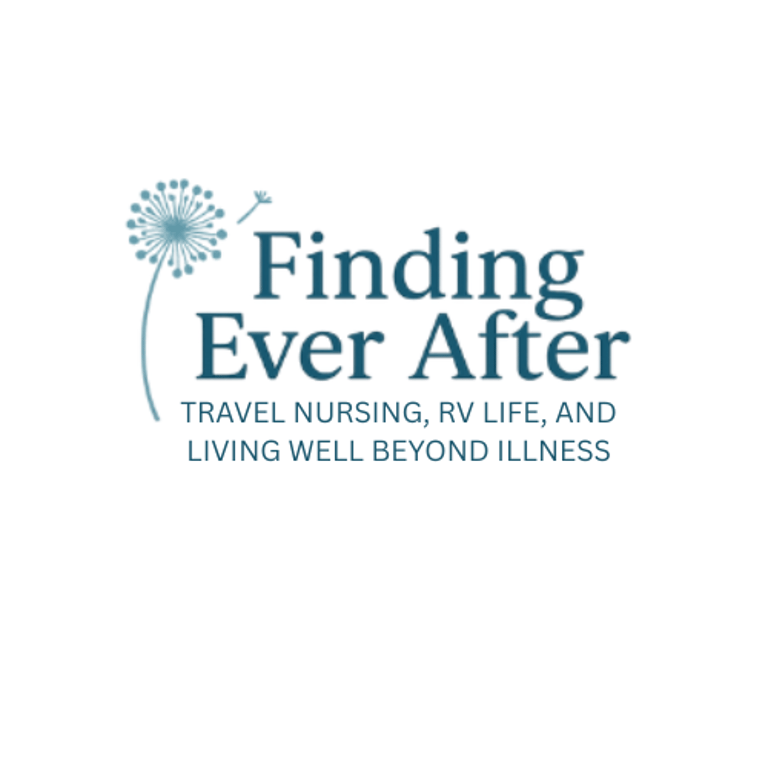Finding Hope in Online Health Communities: Why Connection Matters When You’re Chronically Ill
Living with chronic illness can feel isolating. Discover how online health communities provide hope, connection, and practical support for people navigating anxiety, stigma, and daily challenges.
EMOTIONAL & SOCIAL REALITIES
Velvet Larrabee
6/16/20254 min read


Living with a chronic illness can feel like your world suddenly shrinks. Plans get canceled, friendships shift, and the isolation can be crushing. You may lie awake at night scrolling your phone, wondering if anyone else feels this lost, this anxious, this stuck between wanting to live fully and being tethered by your body’s limits.
If that sounds familiar, you’re not alone—and that’s exactly the point. Online health communities are proof that even when our bodies slow us down, our hearts and voices can still connect.
This post isn’t about a perfect solution, because illness is messy. It’s about finding real hope, support, and a sense of belonging in digital spaces when the outside world doesn’t always understand.
Why Community Matters So Much With Chronic Illness
Chronic illness doesn’t just challenge your health—it challenges your identity, your relationships, and your sense of safety in the world. Suddenly, things you used to do without thinking (work, socialize, travel, run errands) feel heavy with risk and planning.
And then there’s the loneliness. When friends or family don’t “get it,” you can start to feel invisible. People may say things like “But you don’t look sick” or “You just need to be more positive.” Those words sting, not because people mean harm, but because they highlight the gap between your lived reality and their understanding.
This is where community matters. Humans aren’t meant to carry suffering alone. We need witnesses—people who nod with recognition instead of confusion, people who say “me too” when you share your fears.
Online health communities, whether they’re Facebook groups, forums, Discord channels, or Instagram circles, can become the place where you find those witnesses.
The Unique Power of Online Spaces
You might wonder, “But can online friendships really matter that much?” The answer is yes—and sometimes, they matter more than in-person connections.
Here’s why:
Accessibility – You don’t have to leave your bed to join a conversation. Pajamas, heating pad, mobility aids, IV drip—it doesn’t matter. You’re welcome.
Shared language – You don’t have to explain medical jargon or justify why you’re exhausted. Others get it instantly.
Time-zone proof – Can’t sleep at 3 AM? Someone, somewhere is awake and ready to listen.
Anonymity when needed – You can share fears you’re not ready to tell family or friends without fear of judgment.
Diverse perspectives – You meet people with your exact condition—or different ones—who offer coping strategies you may not have thought of.
In short: online communities meet you exactly where you are.
The Emotional Lifeline of “Me Too”
Picture this: You post in a support group that you’re terrified about an upcoming doctor’s appointment. Within minutes, replies roll in:
“I had that test last year—you’ll be okay. Here’s what helped me.”
“I know the anxiety. Sending you so much strength.”
“Me too. Reading this feels like you just put my feelings into words.”
That “me too” moment can feel like air after drowning. It’s not about fixing the problem—it’s about knowing you don’t have to carry it alone.
Online community doesn’t erase fear, but it softens its edges. It tells you: Your story matters. You belong.
Practical Benefits Beyond Emotional Support
While the emotional validation is life-saving, online health spaces also offer practical tools:
Tips for daily living – Ideas for managing fatigue, navigating insurance, meal planning, or adapting your home.
Doctor recommendations – Word-of-mouth referrals to specialists who actually listen.
Advocacy resources – Learning your rights at work, in school, or in medical settings.
Product hacks – Reviews of mobility aids, apps, or comfort items that make life easier.
Education – Access to webinars, Q&As, and condition-specific knowledge shared by people who’ve lived it.
It’s the kind of insider knowledge that only people walking this path can give.
Navigating Online Spaces Safely
Of course, not every online space is safe or healthy. It’s important to protect your mental health by:
Choosing moderated groups – Look for spaces with clear rules against bullying, misinformation, or toxic positivity.
Stepping back when overwhelmed – If posts trigger anxiety, it’s okay to log off for a while.
Fact-checking medical advice – Community wisdom is powerful, but always confirm treatment info with a healthcare professional.
Finding the right fit – Some groups focus on venting, others on solutions. Try different ones until you find your people.
Healthy community should leave you feeling supported, not drained.
Stories of Connection
Maria’s Story – After being diagnosed with lupus, Maria felt abandoned by friends who didn’t understand her new limits. Online, she found a group of women in their 30s also living with lupus. They started weekly Zoom calls, where laughter and venting blended into deep friendship.
James’ Story – A young man with Crohn’s joined a Reddit forum at 2 AM during a flare. Someone in another country responded immediately with encouragement and tips. That simple connection helped him face the ER with less fear.
Anya’s Story – Living with fibromyalgia, Anya used Instagram to share daily life hacks. She found not only encouragement but a purpose: helping others by sharing her journey.
These aren’t isolated stories—they echo across thousands of online health spaces every day.
The Balance Between Online and Offline Life
Online communities don’t replace in-person connection, but they bridge the gap when physical life feels isolating. They can also give you the confidence to try new things within your limits—maybe joining a local group, advocating for yourself at the doctor, or reaching out to a friend.
Hope online can lead to courage offline.
How to Start Finding Your Community
If you’re ready to explore, here are a few places to look:
Facebook groups (search by illness, symptom, or interest)
Reddit communities (e.g., r/ChronicIllness, r/Fibromyalgia, r/Lupus)
Instagram & TikTok (hashtags like #ChronicIllnessCommunity or #SpoonieLife)
Patient advocacy sites (like MyChronicIllnessTeam, PatientsLikeMe)
Discord servers for chronic illness or mental health
Start small—join one or two, read posts, and slowly engage. You don’t have to share your whole story at once. Even liking a post can be a step toward connection.
Final Thoughts: Hope Through Connection
If chronic illness has left you scared, anxious, and unsure where to turn, online health communities can be a light in the dark. They don’t erase the hard parts of illness—but they remind you that you don’t have to face them alone.
Every time you read “me too” or “sending love,” you are stitching yourself back into the fabric of humanity. You are reminded that your voice matters, your story matters, and most importantly—you matter.
In a world that can feel isolating, community is hope. And hope is what saves us.
"Community is just one piece of thriving with illness. For a broader look at building a life you love within limits, start here- Living With Chronic Illness: A Complete Guide to Thriving Beyond Your Diagnosis"
